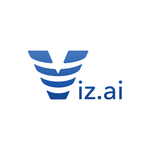Real-world evidence presented at the 2025 International Stroke Conference shows positive impact of AI-powered care coordination on stroke treatment times and financial outcomes
Two New Studies Demonstrate Proven Impact of Viz.ai’s Stroke Solution on Patient Outcomes and Hospital Economics
Media Contacts
Carolyn Jones
carolyn.jones@viz.ai
Daniel Yunger
daniel.yunger@kekstcnc.com
Viz.ai, the leader in AI-powered disease detection and intelligent care coordination, today announced new clinical data supporting advancements in neurovascular care. Two studies, presented at the International Stroke Conference (ISC) 2025, have shown positive outcomes with real-world impact of Viz.ai in clinical practice for patients with acute large vessel occlusion (LVO) strokes.
“Stroke is a leading cause of death and disability in the US, and rapid treatment is crucial for better outcomes,” said Molly Madziva Taitt, Ph.D., VP of Global Clinical Affairs at Viz.ai. “With these studies, we further validate the accuracy and effectiveness of our solutions in the clinical setting, including data on economic impact. This reinforces our commitment to advancing patient care coordination and empowering clinicians with the digital tools they need to make faster, more informed decisions.”
The first study, “Optimization of Acute Stroke-Related Hospital Finances Utilizing Artificial Intelligence Financial Implications of Recent Clinical Study Results,” examined the economic benefits of AI-based stroke care coordination platforms for hospitals and patients. The study projects a significant financial benefit for Primary Stroke Care (PSC) centers by retaining patients who would have been unnecessarily transferred. The calculations suggest that if 15% of stroke care were delivered at PSCs in rural/small town areas and an additional 15% in micropolitan areas, there would be a reimbursement shift of approximately $36.7 million to PSCs. The study showed a 44.13% reduction in time from patient arrival to LVO diagnosis and first contact with the treating endovascular surgeon. These improvements in stroke workflows and treatment times led to reduced lengths of stay in the hospital.
“For hospitals, patients, families, and the care team, ideal stroke care involves identifying the patient's medical needs quickly and transferring the patient only when a higher level of care is deemed necessary to ensure the best outcome,” said Thomas Devlin, MD, PhD, FSVIN, Neuroscience Institute Director, Neurologist at CHI Memorial and co-author of the study. “This study showed that ensuring patients are in the right place for stroke care not only improves outcomes but also reduces futile transfers and provides financial benefits.”
The second study, “Treatment time metrics following implementation of the Viz.ai artificial intelligence intracranial occlusion-detection and communication platform: A multicenter retrospective analysis,” evaluated the impact of Viz LVO on treatment times and is the second multi-center study to reinforce results demonstrated in previous single-center studies with fewer patients. In the study, which included 474 patients (215 post-Viz, 45.4%), Viz LVO implementation significantly reduced treatment time by an average of 31 minutes.
“Every 1 minute delay to endovascular therapy has been associated with 4 additional days of disability adjusted life-years,” said James Siegler, MD, Stroke Director at University of Chicago. “The use of image sharing, artificial intelligence supported, communication platforms has the potential to significantly impact treatment times and functional outcomes in stroke patients.”
For more information on the Viz Neuro Suite, visit https://www.viz.ai/neuro.
About Viz.ai, Inc.
Viz.ai is the pioneer in the use of AI algorithms and machine learning to increase the speed of diagnosis and care across 1,700+ hospitals and health systems in the U.S. and Europe. The AI-powered Viz.ai OneTM is an intelligent care coordination solution that identifies more patients with a suspected disease, informs critical decisions at the point of care, and optimizes care pathways and helps improve outcomes. Backed by real-world clinical evidence, Viz.ai One delivers significant value to patients, providers, and pharmaceutical and medical device companies. For more information visit Viz.ai.
View source version on businesswire.com: https://www.businesswire.com/news/home/20250213606623/en/










